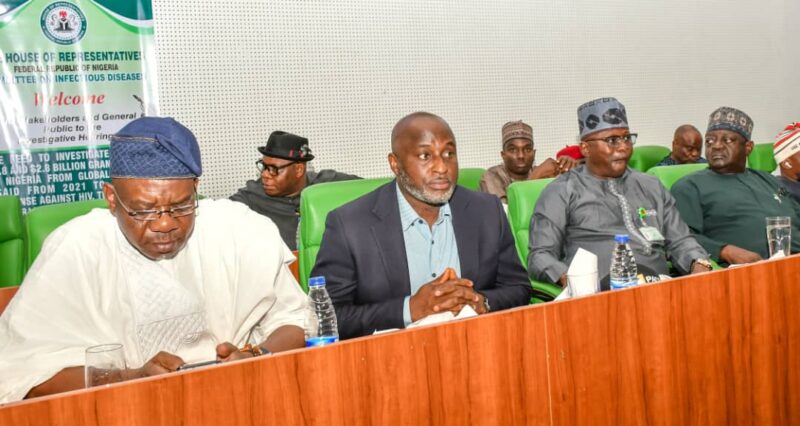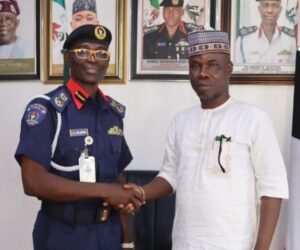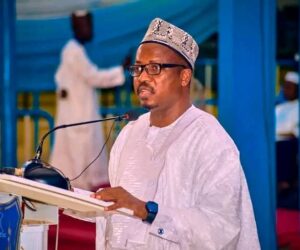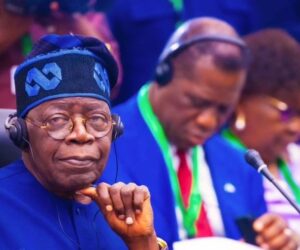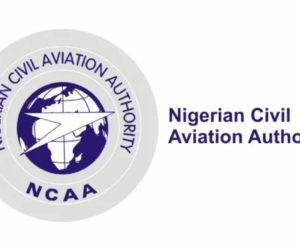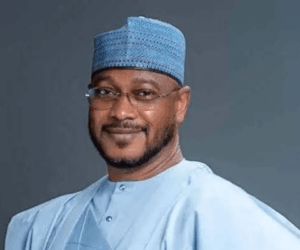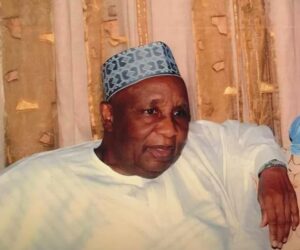1
Torkwase Nyiekaa
The House of Representatives on Monday commenced a comprehensive investigation into the management of health grants totaling over $4.6 billion received by Nigeria from the Global Fund and the United States Agency for International Development (USAID) between 2021 and 2025.
The inquiry, spearheaded by the House Committee on Infectious Diseases, aims to uncover how the $1.8 billion from USAID and $2.8 billion from the Global Fund were utilized to combat HIV/AIDS, Tuberculosis, and Malaria, and to strengthen the country’s health systems.
Declaring the session open in Abuja, the Committee Chairman, Rt. Hon. Amobi Godwin Ogah, explained that the probe became necessary to ensure transparency and proper utilization of international aid targeted at addressing Nigeria’s persistent public health challenges.
Ogah reminded participants that the House, during plenary on October 21, 2025, directed the then Committee on HIV/AIDS, Tuberculosis and Malaria (ATM) to investigate the matter. He applauded Speaker Tajudeen Abbas for broadening the committee’s mandate and renaming it the Committee on Infectious Diseases to reflect a wider health oversight role.
“Nigeria continues to reel under the heavy burden of HIV, Tuberculosis, Malaria and other infectious diseases. Despite significant budgetary allocations and donor interventions, the relief expected by Nigerians remains elusive,” Ogah lamented.
The lawmaker emphasized that the public hearing was designed to uncover the actual use of the huge grants received over the years, noting that nearly 90 percent of Nigeria’s intervention funding in the fight against these diseases comes from foreign partners.
He warned that the era of Nigeria being a “passive observer” in the management of donor funds was over.
“Any form of grant or assistance that excludes Nigeria from managing its implementation is unacceptable. If such funds will not align with our national priorities, we can do without them,” Ogah declared.
He directed the Federal Ministry of Health and Social Welfare, as well as the Country Coordinating Mechanism (CCM), to ensure that all principal recipients and implementing partners present their operational plans to the National Assembly for vetting before the release of funds.
“The days of expending resources without proper oversight or legislative approval are gone,” he warned.
Ogah also revealed that the House is currently reviewing the National Agency for the Control of AIDS (NACA) Establishment Act to expand its mandate. When amended, the agency will be rebranded as the National Agency for the Control of AIDS, Tuberculosis and Malaria (NACATAM), a multi-sectoral body responsible for integrated disease control.
According to him, the committee’s investigation will provide clarity on the level of transparency and fiscal responsibility in donor-funded health projects since 2021.
“Both state and non-state actors must account for every kobo of donor support spent in Nigeria’s health sector,” he insisted.
Ogah further noted that with the 8th replenishment of the Global Fund expected later this month, Nigeria must begin to reduce inefficiencies and dependence on external resources.
“We must ensure maximum impact by eliminating duplication and waste, while channeling domestic resources to areas with the highest value for our people,” he added.
He disclosed that the committee would collaborate with the EFCC and ICPC to track the financial flow of donor funds and ensure that principal recipients and implementing partners account for all expenditures.
“This is particularly important because some terror financing activities have reportedly been linked to the diversion of grant and donor funds,” Ogah said.
He urged implementing partners to prepare for robust legislative scrutiny, noting that some operate without identifiable office addresses. The committee, he said, would hold both the Ministry of Health and the CCM responsible for ensuring accountability among all grant recipients.
Ogah clarified that the investigation was not targeted at any organization or individual.
“This is not a witch-hunt. It is a democratic process aimed at ensuring transparency and value for every naira and dollar invested in Nigeria’s public health response,” he stated.
He reaffirmed the committee’s commitment to eradicating infectious diseases by 2030.
“No Nigerian child should die before age five due to HIV, Tuberculosis, or Malaria. This investigation is part of our commitment to achieving that goal,” he said.
In his remarks, the Minister of Health and Social Welfare, Dr. Muhammad Ali Pate, emphasized the need for Nigeria to gradually reduce its reliance on foreign aid in tackling public health challenges.
Pate noted that while donor support has saved millions of lives through HIV, TB, and malaria interventions, Nigeria’s domestic health financing still falls short of the 15 percent benchmark set by the Abuja Declaration.
He welcomed the parliamentary probe as a timely step toward greater accountability, sustainability, and national ownership of health programmes.
“After more than two decades of donor support, Nigeria must begin to take charge of financing its health priorities. Transparency in the use of grants will encourage trust and local investment,” the Minister said.
Declaring the hearing open on behalf of Speaker Tajudeen Abbas, Hon. Ibrahim Isiaka said the investigation demonstrates the National Assembly’s commitment to openness and responsible governance in the health sector.
“This exercise will produce an evidence-based report detailing how the grants were received, disbursed, and utilized, and will help strengthen governance and accountability in Nigeria’s health system,” he added.

